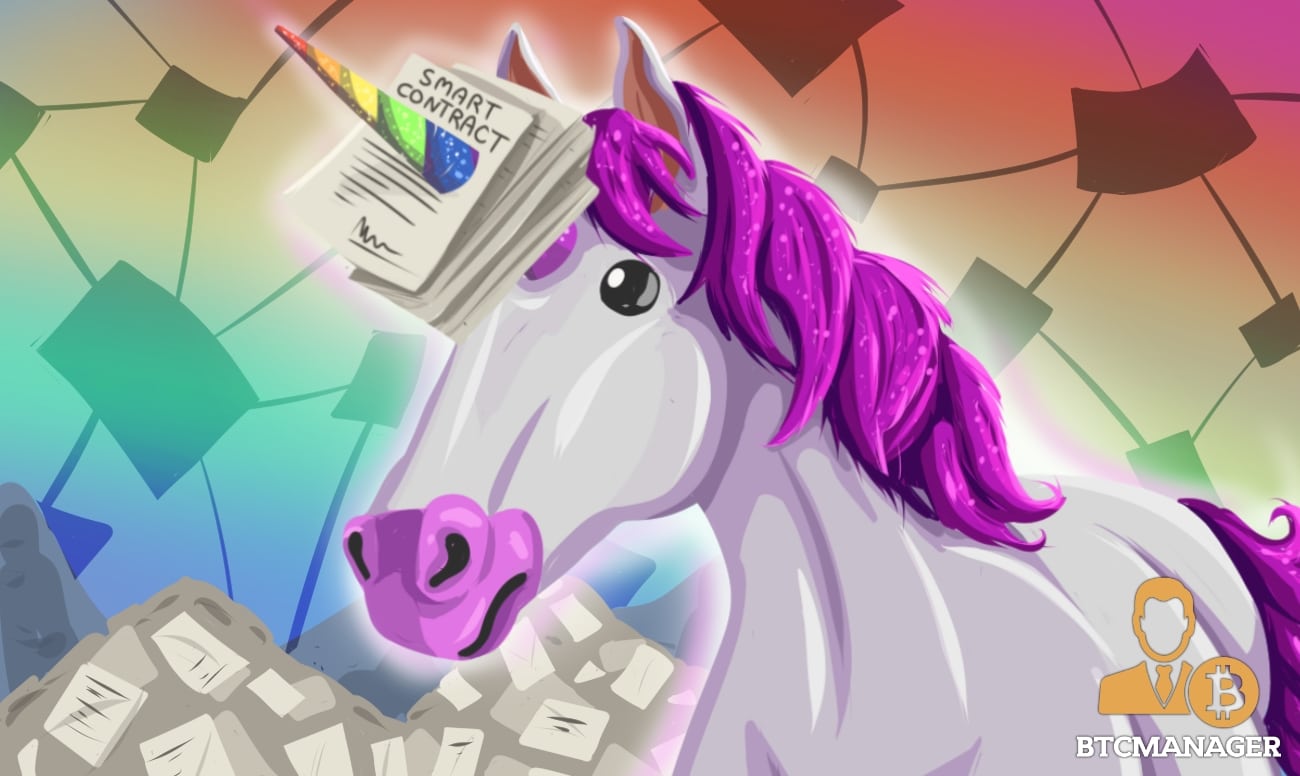Ethereum-Based Exchange Uniswap DEX Has no Token and Much Smart Contract

The demand for decentralized token exchange solutions has been on the rise as the shortcomings of centralized exchanges have become increasingly more evident. Crypto investors also continue to be plagued by security concerns and are now facing lengthier onboarding and KYC processes when trading on these platforms. It is, therefore, no surprise that decentralized exchanges (DEXs) are witnessing an increase in users.
One of the newest additions to the DEX universe is Ethereum-based Uniswap, which deploys smart contracts to enable secure, decentralized on-chain conversions of ETH and ERC20 tokens.
What Is Uniswap?
Uniswap defines itself as “a protocol for automated token exchange on Ethereum.” On first glance, this may make Uniswap sound like any other decentralized exchange. Uniswap possesses certain features, however, that differentiates this newcomer from other decentralized exchanges.
Uniswap has a very user-friendly interface which makes it much easier for newer cryptocurrency users to trade on the platform. Additionally, all transactions are processed on-chain without the use of an intermediary.
The exchange has no native token, and no funds were raised during a token sale. That means there is no special treatment for early investors or even the platform’s developers. Uniswap is an open-source platform that is being developed as a “public good,” and all smart contract functionalities can be viewed by anyone.
Moreover, there are no token listing fees. Listing new tokens is open and free for anyone. If a token does not yet have a smart contract that makes it tradable on the exchange, it can be created on the Uniswap factory.
How Does the Uniswap Protocol Work?
The Uniswap protocol is composed of a number of ETH-ERC20 exchange smart contracts, one per ERC20 token. Each ETH-ERC20 contract holds reserves of both ETH and the Ethereum token to create an internal liquidity pool for each exchange contract.
Unlike other decentralized exchanges, such as EtherDelta or IDEX, where traders can buy or sell based on prices and volumes in a limit order book, the exchange contracts act as automated market makers that use what Uniswap refers to as a constant product market making model.
The constant product market making formula calculates the exchange rate at which trades will be executed based on the relative size of the ETH and the ERC20 token services and the amount that the incoming trade will shift this ratio.
For example, if ETH is being sold for the ERC20 token, the size of the ETH reserve increases and the ERC20 reserve in the exchange contract decreases. As a result, the reserve ratio shifts to increase the price of the ERC20 relative to ETH for the next transactions.
This means that the larger a trade, the more price slippage occurs as Uniswap effectively lets the open market decide on the relative value of a trading pair and uses this information as an automated market making strategy.
Uniswap’s automated market making features, therefore, makes it very user-friendly for beginners and retail traders who want to trade in small ticket sizes without wanting to deal with the relative complexities of navigating an order book and executing limit orders. Instead, Uniswap’s market making model manages the process for users in a fully automated fashion that enables traders to receive “best execution” concerning Uniswap’s market for the specific a currency pair.
The model makes Uniswap somewhat unusable for large investors, such as early adopters, high net-worth individuals, and institutional investors, as the pricing they would receive would carry a substantial premium due to their larger ticket sizes.
While there are no commissions pocketed by the exchange, each transaction is charged a liquidity provider fee of 0.3 percent, which is added into the liquidity reserves to ensure that the total reserve size in the exchange contract grows with each trade. These fees also function as a payout to liquidity providers when they withdraw their holdings of the reserves.
How to Trade on Uniswap
If interested parties want to buy or sell an ERC20 token on Uniswap, they simply access the protocol’s frontend at https://uniswap.exchange/ and sign it to their MetaMask Ethereum wallet.
Next, users choose the tokens they want to exchange and input the amount they want to buy or sell. Then, click “Swap” and confirm the transaction on the MetaMask client.
Depending on the size of the transaction and current network usage, a trade should be executed within a few seconds, and newly purchased tokens will appear in the MetaMask wallet.
Alternatively, one can also choose to add tokens into an exchange contract’s liquidity reserve to receive the liquidity provider fee on deposited tokens, which is distributed evenly on all liquidity providers.
A “Better” Bancor, but for Retail Investor Only
In a blog post about Uniswap, Cyrus Younessi, Director of Research and Trading at Scalar Capital, highlights the fact that Uniswap’s exchange model is similar to that of Bancor. However, he also points out that Uniswap has several advantages over its high-profile predecessor:
“Uniswap charges no listing fee, costs significantly less gas, and is more decentralized. Bancor requires staking BNT tokens to create a market, along with filling out an application form. The BNT token is also susceptible to being frozen at will. Uniswap contains no such frictions. Uniswap will run in perpetuity as long as the Ethereum network is running.”
Due to the way in which Uniswap manages liquidity and executes trades, however, it is unlikely that it will attract institutional investors or early adopters with deep pockets. This demographic end up paying too high a premium for execution.
Uniswap is well-positioned to establish itself as a go-to DEX for small traders looking for quick and easy conversions of ERC20 tokens. Younessi agrees with this notion and concludes his analysis of Uniswap saying:
“Uniswap is unlikely to replace other types of DEXes due to whales wanting to trade large size orders. Its unique capabilities, however, will definitely lead to a lot of usage for everyday traders who are looking to get quick and easy access to various tokens.”















